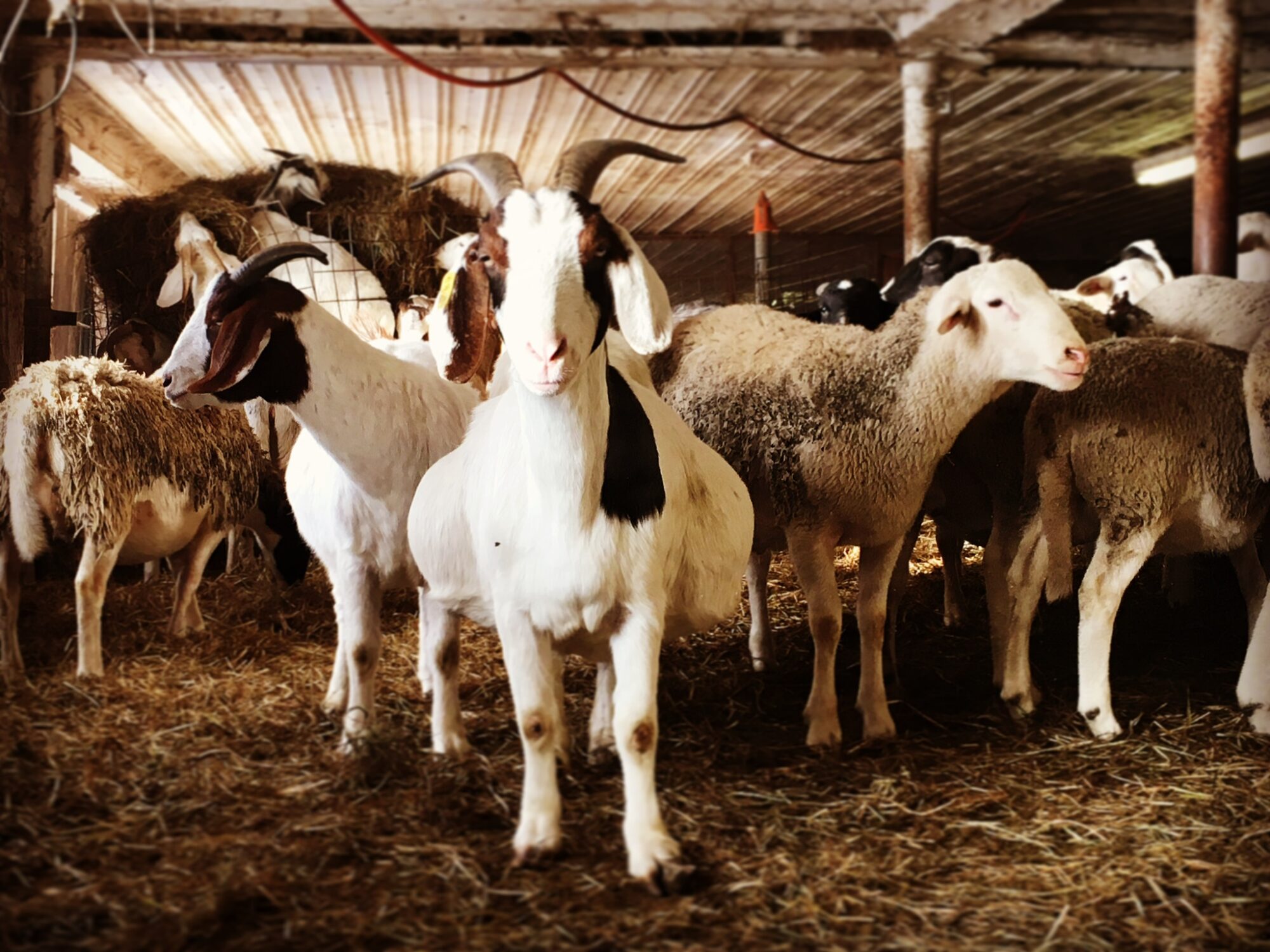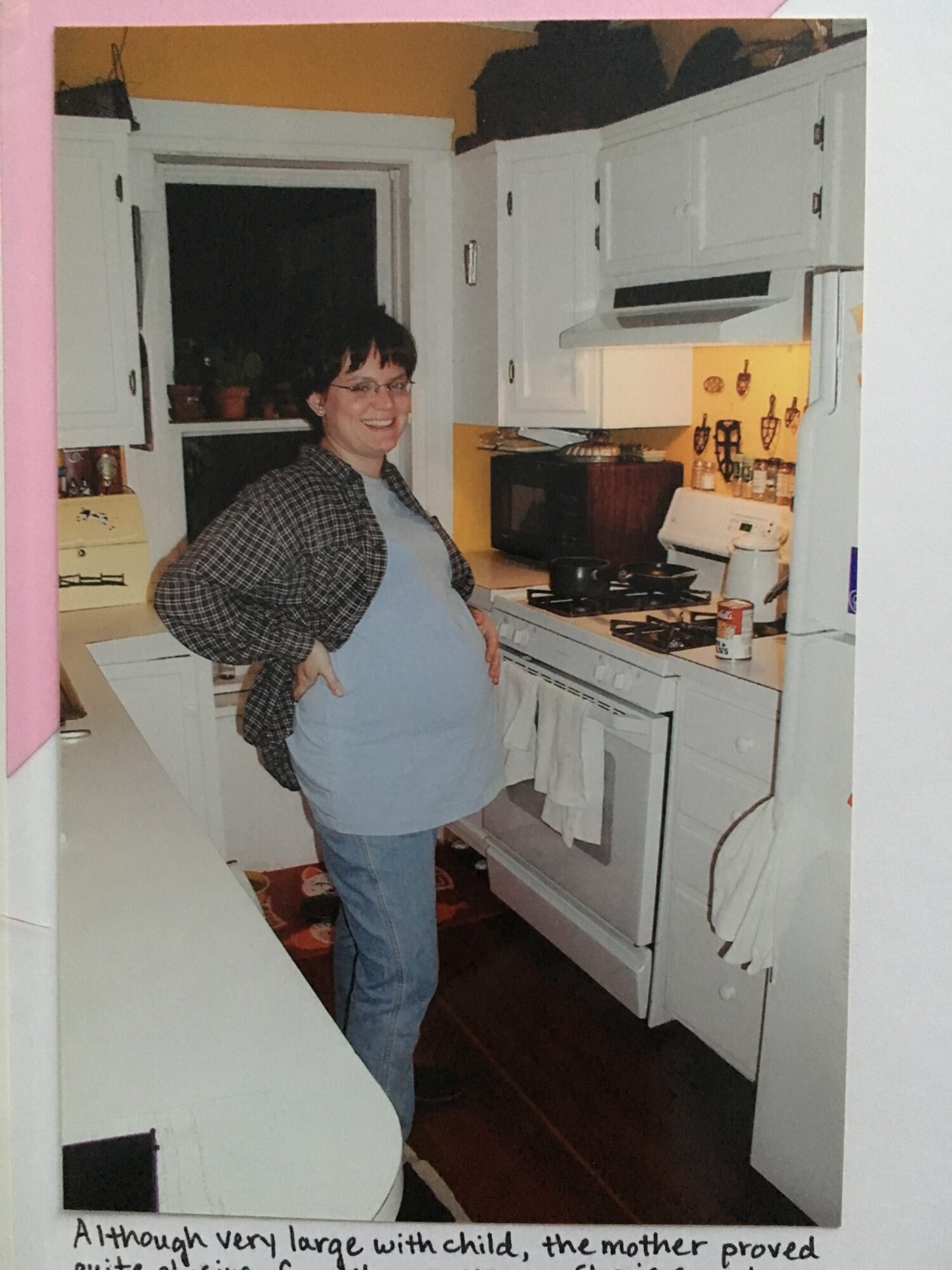Thank goodness for the changing of the seasons. Every phase of the calendar gives me something to look forward to—a variation in pace, a “changing of the gears” that forces this farmer to completely and utterly shake up her routine to face a different set of challenges. It is one of the many things I love about being a farmer.

For me, this season—the season of love—is filled with very, very, VERY pregnant goats and sheep.
The change in the calendar is the result of planning done months ago. It was just a short five months back, in the waning days of late summer and crisp nights of early fall, that my does (female goats) and ewes (female sheep) were bred for winter babies. Decisions were made that are now coming to fruition.
Our animals are now all snug and comfortable in the barn for the winter. Because they are not out grazing the pastures as they would in summer, I have to attend to their every need. That means feeding and watering them, of course. It also means I spend much more quality, up-close-and-personal time with them.
There is a completely different vibe on the farm during these coldest of months. On summertime pastures, they avoid me, preferring to keep their heads down in the lush grasses. They are almost wild during grazing season and are far more apt to run away from me than towards me. But in the barn, I have to wade through the sea of bodies, sometimes scratching their ears as they jostle at the feeders. Although they have ample space in the barn, it’s a little like five people sharing a one-bedroom apartment: You can’t avoid one another! The wildest of them become quite docile in this environment, and I seem to make new friends or reacquaint myself with old pals in the cozy winter barn.
Babies will begin arriving any day. Until then, I make sure my very pregnant animals are waited on hand and hoof. Having had two children myself, I remember well what it’s like to be pregnant.
I didn’t care for the early months of morning sickness (which happened at all times of the day). I was jealous of the women who carried their unborn babies much like a perfect basketball, right in front. I, on the other hand, seemed to be pregnant all over, making me feel as large as a truck. I had the distinct sensation that my lungs and other vital organs were being pushed aside for the sake of a yet-to-be-seen unknown alien life form. All these sensations led to some very bizarre dreams. I once dreamt I gave birth to our cat, who then proceeded to clean himself, right in the delivery room! No matter how much I love my children, it’s safe to say I really didn’t enjoy pregnancy.

The odd thing was, my body seemed to like being pregnant. Perhaps it was because I kept active doing my regular farm chores. My blood pressure, sugar levels, heart rate and other measures checked at the OB’s office were always excellent. In some instances, they were better than my non-pregnant state. What the heck, biology?!?
But with both pregnancies, I thoroughly enjoyed the baby’s movements. The rolling, the stretching, yes, even the kicking were fun and exciting. Although my husband perhaps could feel the foot jutting out of my side, I felt these sensations were all for me.
So, how does a farmer tend to her pregnant animals? Perhaps regardless of species, pregnant females seem to enjoy back rubs, brushing and general pampering in their bulky, inelegant state. My goats and sheep are no different. They seem to welcome the attention I give them. Plus, regular handling gives me the crucial opportunity to check their body condition. “Body condition scoring,” or BCS, is an important tool for checking an animal’s health. Next time you take your cat or dog to the vet’s office, see if you can spot a chart illustrating five or so different body conditions ranging from “too thin” to “too fat.” Undernourished animals will have problems with fertility, ability to support a fetus, and decreased milk production. Too fat is no good either, causing another host of problems. The sweet spot is somewhere in the middle.
BCS is important on an individual level, helping me identify an animal that may have a unique issue that needs attention. BCS is also important at the overall herd level, helping me identify general management issues that require adjusting. For example, if half or more of my animals are scoring lower than I would like, I may consider worm load to be a problem, or perhaps look at increasing the quality of their forage.
BCS cannot be done by simply looking at an animal. You have to get your hands on them. Ever since my sheep and goats entered their third trimester (and the cozy winter barn), I’ve been checking their body condition. I pay particular attention to the loin area, the breastbone, and the ribs, feeling for sufficient fat cover. While doing so, I get the occasional thrill of feeling a baby kick or jostle for room amongst its siblings in their increasingly cramped quarters. I’ll soon get to see them come into this world.
My role as midwife to about 80 pregnant goats and sheep is a welcome change of pace from the rest of the calendar year. In the next phase, I’ll be cuddling babies and to talking softly to new, nervous moms. As the babies find their legs, I will be treated to goat acrobatics and lamb races up and down the length of the barn. Another change in the calendar I will look forward to!